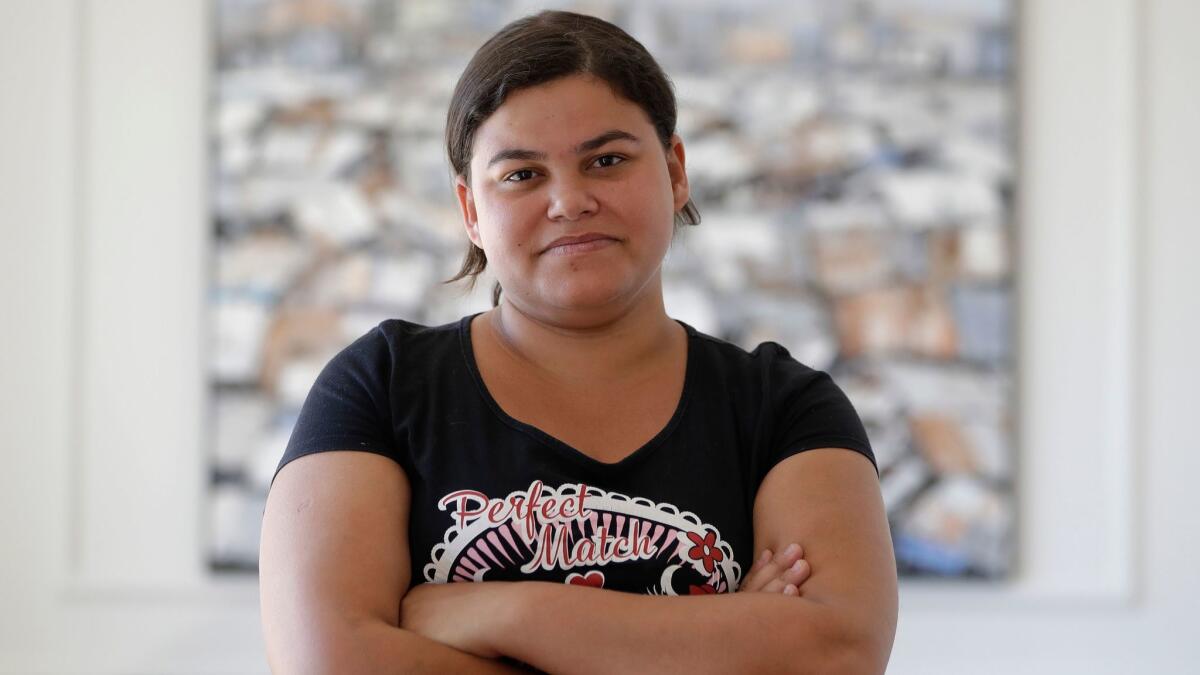Op-Ed: I tried (and failed) to get a safe and legal abortion in Brazil

- Share via
I’m a 30-year-old Brazilian with two young children, temporary employment and hopes for an eventual legal career. When I sought permission to terminate my pregnancy, I was thinking about my family, my finances and my future. In the process I found myself at the center of a political story, becoming the first woman in our country to fight for an abortion in court based on personal, nonmedical needs.
Last month, the United States marked the 45th anniversary of Roe vs. Wade — a landmark decision that secured the right of American women to have an abortion. It remains the law of the land, despite repeated attempts to reverse the decision. Since filing my petition with Brazil’s Supreme Court last year, many people have compared my suit to Jane Roe’s. But there is one crucial difference: She won. The court denied my plea and women in Brazil continue to risk their health and lives if they decide to terminate a pregnancy.
The lack of safe and legal options makes the possibility of grave injury and even death a constant reality for women seeking abortion services in Brazil.
Brazil has one of the most restrictive abortion laws in the world. Women are only able to access legal abortion services if the pregnancy is the result of rape, if a woman’s life is at risk or if the fetus is without a brain or skull. But restricting access to abortion services does not stop women from getting them. Each year, at least half a million Brazilian women have an abortion that doesn’t meet the legal requirement — almost one every minute.
Women take a gamble when they seek these services. Abortions often take place in unlicensed, underground clinics where the care ranges from safe to deadly. Whether you’re rich or poor can dictate whether you receive a safe procedure or have to resort to dangerous methods. I couldn’t pay for one of the clinics wealthy women use, and I worried about taking a medical abortion pill (also illegal) without receiving any medical advice.
The lack of safe and legal options makes the possibility of grave injury and even death a constant reality for women seeking abortion services in Brazil. Hundreds of thousands of women are taken to the emergency room each year due to complications from unsafe procedures and unsafe abortion is one of the leading causes of death related to pregnancy. Women and providers also face prosecution and jail time if they’re caught — even if the abortion occurred years before.
With these facts in mind, I had two obvious options: continue a pregnancy that I knew would have a damaging effect on my well-being and put my family in financial jeopardy, or have the procedure done illegally, risking arrest, injury or even death. I tried a third option instead: to fight.
The court said that I had no grounds to bring the case and declined to rule on it.
In the days and weeks that followed the court’s denial, I was threatened, offered money and adoption services, vilified on social media and denied new job opportunities — all because I dared to speak out about what I wanted to do with my body and my life. In December I was lucky enough to receive abortion care in Colombia, a country that allows the procedure mental health grounds. After it was over, I felt immensely relieved, confident that I had made the right decision for myself and my family.
My abortion story has a conclusion, but for many Brazilian women, the story remains unfinished. Despite the efforts of Brazilian politicians to further control women’s health and lives by advancing legislation to ban abortion in all cases, there is a strong and increasingly vocal movement in support of safe abortion care. Public support is shifting, with a recent survey finding that 64% of Brazilians believe that women should be the sole decision-makers on whether to have an abortion. Women are also speaking out more openly than before, sharing their abortion stories and taking to the streets to demand change.
And while the Supreme Court did not grant my appeal for a legal abortion, it has yet to rule on the broader petition on which my plea was filed, which seeks to decriminalize abortion services up to 12 weeks.
Roe vs. Wade marked a turning point in the U.S. My hope is that a landmark moment in Brazil is similarly upon us.
Rebeca Mendes is a law student in Brazil. In November, she became the first woman in Brazil to petition for a legal abortion for personal reasons. This piece was written in Portuguese and the translation was approved by the author.
Follow the Opinion section on Twitter @latimesopinion or Facebook
More to Read
A cure for the common opinion
Get thought-provoking perspectives with our weekly newsletter.
You may occasionally receive promotional content from the Los Angeles Times.









